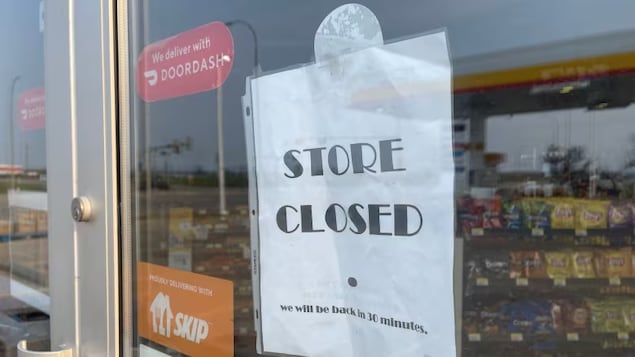Madrid, December 4 (European Press) –
The lack of resources for banking supervision was one of the reasons for the banking crisis in the spring, which affected four banks in the United States, and also one in Switzerland, according to an article prepared by experts from the Bank of Spain and published today in the Fall 2023 Financial Stability Review.
The article, signed by José Alonso, Rebecca Anjorin, Mai Cruz Manzano, and Joaquin Mochón, reviews the crisis that occurred between last March and May with the self-liquidation of Silvergate Bank, and the dissolution of Silicon Valley Bank, Signature Bank, and First Republic Bank. , as well as the sale of Credit Suisse to UBS, says it is a reminder of how quickly banking crises can happen.
Regarding the progress of supervisory work, he points out that supervisors of the affected entities “discovered weak points” in the banks, although they “did not act quickly enough” due to slow, and in some cases, inefficiency, internal control. Supervisory processes of escalation in decision-making and the absence of sufficiently effective supervisory procedures.
In the case of US entities specifically, the analysis includes an analysis of supervisory authorities, which in some cases stated that they “do not have” sufficient human resources to carry out their tasks.
Moreover, experts from the Bank of Spain point out that the organization and structure of supervision in the United States is “rather complex” and includes different supervisory authorities at the state and federal levels, which perhaps “in some cases, could have slowed down the decision-making process.” “.”
They explain that banks in the United States can choose to obtain a state or federal license, without limiting their scope.
from work. Under this scheme, banking entities would be supervised by the authority that granted them the license: the Office of the Comptroller of the Currency (OCC), if the license is federal, or, if the license is state, a state authority. The license is granted by a federal supervisor, which may be a regional federal bank or the Federal Deposit Insurance Corporation.
Likewise, the article notes that the intensity and application of supervision in the United States depends on size, which implies “permissive” supervision of entities subject to the crisis.
“All this means a lack of a global supervisory vision and a more forward-looking approach to the business model and risk management of supervised entities.”
In this regard, the authors point out that the US approach is “opposite” to that of the Eurozone, where regulation applies to all entities without differentiation by size, meaning that smaller entities are also subject to the requirements approved by the Basel Committee. Including capital and liquidity standards.
“The homogeneity of demands means that smaller entities in the eurozone are more prepared for potential periods of tension than they are in the United States,” they say.
Areas for improvement in supervision
Thus, the Spanish Banking Supervision Authority points out some areas that need improvement regarding supervision, such that it must be “homogeneous”, regardless of the size of the entity, although it must adapt to the type of business carried out by each bank. Taking into account the standards of proportionality and consistency.
In addition, it must have sufficient supervisory resources to adapt to the “current complex framework”, in which new assets and businesses have emerged, such as fintech, crypto-assets and relationships with non-bank intermediaries.
He notes that these resources should allow for in-depth analysis of specific risks and an “appropriate” balance between in-person and remote supervision, because supervision “requires ‘on-site’ verification of data management systems, procedures, infrastructure and corporate culture of entities.”
Likewise, the Bank of Spain requires attention to the concentration of activities and operations in specific sectors and activities, and to analyze the sustainability of banks’ business models, to evaluate their governance and plan liquidity and capital.
Credit Suisse
In the case of Credit Suisse, the Bank of Spain points out that it is an entity considered to be systemically important, so its supervision faced “greater complexities” than those of medium-sized entities, such as those in the United States. .
For this reason, the Spanish supervisor believes that it is advisable to go deeper “on a global scale” into analyzing the supervisory needs and available supervisory resources and tools. In this sense, in March 2023 the Swiss Federal Council (SFC) announced a general review of the framework for “too big to fail” entities, as well as the creation of an independent group of experts to analyze this issue.
“The group put forward as a recommendation the need to provide the Swiss financial supervisor with the necessary tools to ensure appropriate liquidity management (ensuring that sufficient collateral is deposited with the Swiss National Bank to ensure access to liquidity) and the ability to intervene pre-emptively before an agreement is reached.” point of futility,” the article stated.





